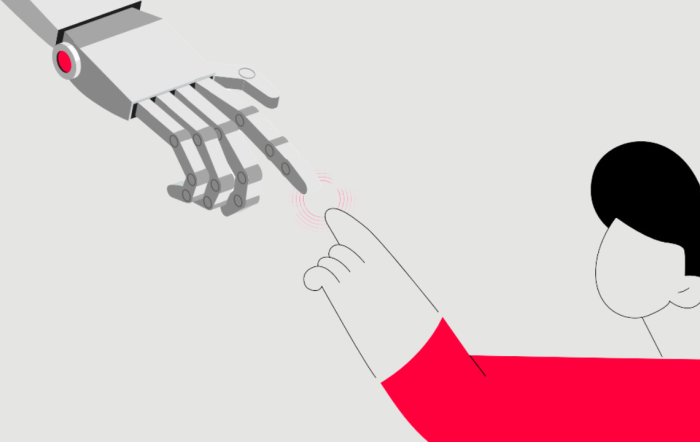Get analysis, insight & opinions from the world's top marketers.
Sign up to our newsletter.
In today’s rapidly changing digital and technological landscape, keeping pace with the latest trends can be challenging. WFA’s monthly AI update serves as your one-stop round up of the most important developments to help you stay informed of the forces transforming the marketing industry. Gabrielle Robitaille, Associate Director, Digital Policy at WFA, identifies the most important announcements.

WFA research from September 2023 revealed that 80% of brands were already using generative AI for marketing purposes or planning on doing so soon. To assess how practices have evolved, the policies and principles brands have in place to mitigate risk and how marketing teams are working with agency partners, WFA is running a follow up GenAI member survey.
To discover how your peers are using generative AI, please fill out our survey. All answers will remain confidential and will be aggregated into a final report, shared with those who participate (WFA members only).
A mock video ad for Volvo generated by AI, which appeared entirely authentic, has gone viral despite having no connection to the car manufacturer. Created by colourist Laszlo Gaal using Runway’s text-to-video platform, the “ad” took less than 24 hours to produce. The believability of the content has impressed the industry, but highlights the need for safety and verification by ad networks as generative AI becomes mainstream.
Toys R Us released the world’s first AI-generated TV ad using OpenAI’s text-to-video generator Sora. However, the ad sparked an online backlash, with critics pointing out inconsistencies calling it ‘cheap, cynical and disrespectful to artists’. The reaction underscores the ethical and reputational risks associated with using AI-generated content in marketing creative.
The US Senate Commerce Committee, responsible for consumer protection, advertising and marketing, held a hearing focused on the risks of using AI for online advertising. Lawmakers expressed concerns about AI accelerating ‘commercial surveillance’ and discriminatory business practices. According to the Committee Chair Senator Cantwell, these highlight the need for a federal privacy law with clear guidelines for businesses developing and deploying AI systems.
Senators from the Committee also put forward a draft Content Origin Protection and Integrity from Edited and Deepfaked Media Act (COPIED Act), designed to combat ‘harmful deepfakes’, drive transparency in AI-generated content and protect artists’ against ‘AI-driven theft’. There are several other draft AI proposals currently under review in the US.
In the UK, King Charles confirmed in his speech that UK Prime Minister Keir Starmer will be putting forward an AI bill in the coming weeks. Starmer’s plans mark a departure from those of his predecessor, who was reluctant to push for regulation for fear it might have a negative impact on innovation.
EU member states via the Council of the European Union are looking into the impact of generative AI on copyright. While existing EU laws such as the Copyright Directive and AI Act establish foundational rules, the Council is assessing whether further intervention is necessary at an EU level.
Key focus areas include the use of copyrighted material in AI model development, copyright eligibility for AI-generated works, fair remuneration and liability frameworks for infringements.
Most generative AI providers are facing legal challenges over claims their models were unlawfully trained on copyrighted material and are producing content that resemble existing works. While some providers are introducing licensing deals with rightsholders, concern remains around how marketers can avoid creating AI-generated content which replicates creative works.
If you missed our session exploring how media and creative agencies are using generative AI, then you can check out the recording of the session. If you’d like to find out how your peers are upskilling their marketing teams on generative AI and the partners they are collaborating with, please check out our recent capability building benchmark. And WFA’s briefing on the EU AI Act and implications for marketers can be downloaded.
Upcoming AI Community events:
Please send across any tips, developments and interesting insights to g.robitaille@wfanet.org.

For more information or questions, please contact Gabrielle Robitaille at G.robitaille@wfanet.org